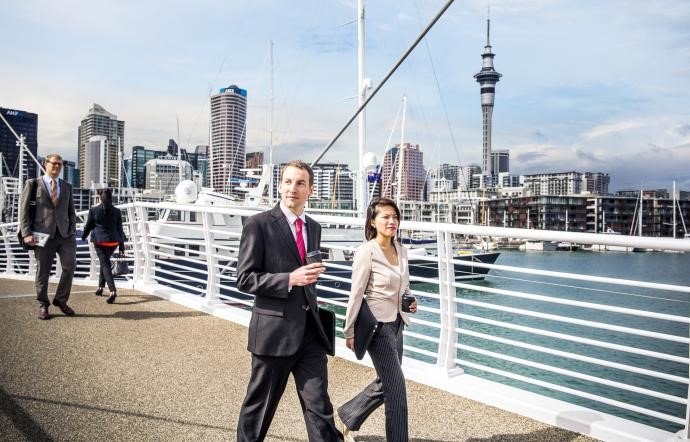
Data.
Four letters. But be honest: it’s a pretty scary word for a lot of people.
There are a few reasons for that, explains Lillian Grace, CEO of Figure.NZ. “Most of the data we have has been collected as a by-product of other services,” she says. “When you understand where it comes from, you can understand why making sense of it can be so hard.”
With a lack of consistency of presenting and storing data – not to mention that it’s spread out all over the place, there are different definitions of things in different data sets (such as “family” or “income”), and different data can be in different formats – added to that, Grace says it only adds to the confusion. “It can feel very chaotic and scary for people.”
But there’s hope, Grace says, and it all comes back to that “d” word: design.
“We have to be getting better at what we don’t know and how we can get to know things we don’t know,” she explains.

Lillian Grace.
Grace says good design can make data more accessible and understandable – which is something Figure.NZ is keenly aware of. She adds Figure.NZ data includes stuff like standards so the data can be easily read and understood even by people with colour blindness.
All this is important because data can help people make better decisions, explains Grace, and better data can lead to a more equal society where we can easier understand how to help people.
Nick Hill, chief executive of Auckland Tourism, Events and Economic Development (better known as ATEED, Auckland Council’s economic growth agency), echoes Grace’s views. “The smartest, most progressive cities and regions in the world are embracing digital technology to achieve transformation,” he told a crowd at co-working space GridAKL in Auckland’s Wynyard Quarter on Thursday. “The wave of technological disruption since 2000 has seen a shift from simple digitisation to innovation based on combinations of technologies.
“Now we are in an era of change described by the World Economic Forum as the Fourth Industrial Revolution. The technological revolution will fundamentally change our behaviour and shape the future of the global economy.”

Nick Hill.
Hill points to things the Auckland Council is doing to use data in a way that benefits more people and promotes a fairer society. One example is Safe Swim, which uses Council-held sensor data to provide real-time information about beach safety and water quality at 84 of Auckland’s beaches and eight freshwater locations, so the public can go online and check for safety advice before they swim – which can be especially helpful after a storm, when excess water can create public health hazards.
Another example is the Chorus Broadband Checker. In short, it’s a database people can use to look up the broadband connections for every domestic household in Auckland city. This, of course, can be helpful for people deciding what type of internet plan to purchase, or whether to even buy or rent a property.

Hill also mentions the “Bruce Project,” which uses computer tools to build a visual picture of Council assets using data the Council has. “The challenge for Auckland, for other regions, and for central government is to unlock digital disruptive opportunities more broadly.”
Figure.NZ’s Grace goes back to the role data can play in navigating towards a fairer society where people are able to get the specific help they need. “One of the values of data is it helps us tailor how people and things are treated,” she says. “I don’t think data should be the currency. It should be something everybody can use.”




